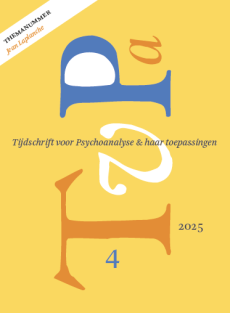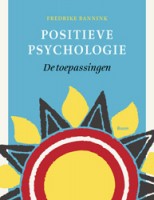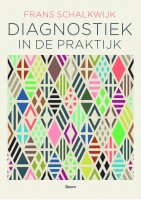Over het vermogen tot het verdragen van psychische pijn
Summary
On the capacity to endure psychic pain
Development of the capacity to endure psychic pain starts in the earliest phases of life. Comforting by the emotionally attuned mother is internalised by the child and the child thus forms a capacity to endure psychic pain. Whereas one goal of psychoanalysis is to get in touch with psychic pain, another is the slow internalisation of the idea that psychic pain is an inseparable part of human existence. A consequence this has for analytic technique is that besides the more maternal, caring aspect the analyst has to have a certain degree of hardness at his disposal, and this has a strong impact on the counter-transference.
Literatuur
- Akhtar, S. (2000). Mental pain and the cultural ointment of poetry. International Journal of Psychoanalysis, 81, 229 -243.
- Bion, W.R. (1963). Elements of psychoanalysis. Londen: Karnac.
- Bion, W.R. (1970). Attention and interpretation. Londen: Tavistock.
- Brazelton, T.B. & Cramer, B.G. (1991). The earliest relationship. Londen: Karnac.
- Dreyfus, P. (1999). Der psychische Schmerz. Ongepubliceerd.
- Freud, S. (1895). Studien über Hysterie. Gesammelte Werke I (p. 75-312). Frankfurt am Main: S. Fischer.
- Freud, S. (1917). Trauer und Melancholie. Gesammelte Werke IX (p. 427-446). Frankfurt am Main: S. Fischer.
- Freud, S. (1926). Hemmung, Symptom und Angst. Gesammelte Werke XIV (p. 111- 205). Frankfurt am Main: S. Fischer.
- Freud, S. (1950). Entwurf einer Psychologie. Gesammelte Werke Nachtragsband (p. 387-477). Frankfurt am Main: S. Fischer.
- Joffee, W.G. & Sandler, J. (1965). Pain, depression and individuation. In J. Sandler (red.), From safety to superego (p. 154-179). New York: Guilford Press.
- Joseph, B. (1989). Towards the experiencing of psychic pain. In B. Joseph, Psychic equilibrium and psychic change (p. 88-97). Londen: Routledge.
- Kogan, I. (1990). A journey to pain. International Journal of Psychoanalyis, 71, 629-640.
- Kahn, M.R. (1981). From masochism to psychic pain. Contemporary Psychoanalysis, 17, 413-421.
- Klein, M. (1940). Mourning and its relation to manic-depressive states. International Journal of Psychoanalyis, 21, 125-153.
- Kumin, I. (1996). Pre-object relatedness. New York: Guilford Press.
- Poland, W.S. (1975). Tact as a psychoanalytic function. International Journal of Psychoanalysis, 56, 155-162.
- Pontalis, J.B. (1981). Frontiers in psychoanalysis – Between the dream and psychic reality. New York: International Universities Press.
- Ramzy, I. & Wallerstein, R. (1958). Pain, fear and anxiety – A study in their interrelationships. Psychoanalytic Study of the Child, 13, 147-189.
- Weiss, E. (1934). Bodily pain and mental pain. International Journal of Psychoanalysis, 15, 1-13.
- Wille, R.S.G. (2005). De psychoanalytische identiteit. Tijdschrift voor Psychoanalyse, 4, 233-247.
- Winnicott, D.W. (1962) Ego maturation. In D. W. Winnicott, The maturational processes and the facilitating environment. Londen: Karnac (1990).
- Winnicott, D.W. (1974). Fear of break down. International Review of Psychoanalysis, 1, 103-107.
 © 2009-2026 Uitgeverij Boom Amsterdam
© 2009-2026 Uitgeverij Boom Amsterdam
ISSN 1382-516x
De artikelen uit de (online)tijdschriften van Uitgeverij Boom zijn auteursrechtelijk beschermd. U kunt er natuurlijk uit citeren (voorzien van een bronvermelding) maar voor reproductie in welke vorm dan ook moet toestemming aan de uitgever worden gevraagd:
Behoudens de in of krachtens de Auteurswet van 1912 gestelde uitzonderingen mag niets uit deze uitgave worden verveelvoudigd, opgeslagen in een geautomatiseerd gegevensbestand, of openbaar gemaakt, in enige vorm of op enige wijze, hetzij elektronisch, mechanisch door fotokopieën, opnamen of enig andere manier, zonder voorafgaande schriftelijke toestemming van de uitgever.
Voor zover het maken van kopieën uit deze uitgave is toegestaan op grond van artikelen 16h t/m 16m Auteurswet 1912 jo. Besluit van 27 november 2002, Stb 575, dient men de daarvoor wettelijk verschuldigde vergoeding te voldoen aan de Stichting Reprorecht te Hoofddorp (postbus 3060, 2130 KB, www.reprorecht.nl) of contact op te nemen met de uitgever voor het treffen van een rechtstreekse regeling in de zin van art. 16l, vijfde lid, Auteurswet 1912.
Voor het overnemen van gedeelte(n) uit deze uitgave in bloemlezingen, readers en andere compilatiewerken (artikel 16, Auteurswet 1912) kan men zich wenden tot de Stichting PRO (Stichting Publicatie- en Reproductierechten, postbus 3060, 2130 KB Hoofddorp, www.cedar.nl/pro).
No part of this book may be reproduced in any way whatsoever without the written permission of the publisher.
Nieuwsbrief Boom Psychologie
Meld u nu aan en ontvang maandelijks de Boom Psychologie nieuwsbrief met aantrekkelijke aanbiedingen en de nieuwe uitgaven.
Aanmelden


